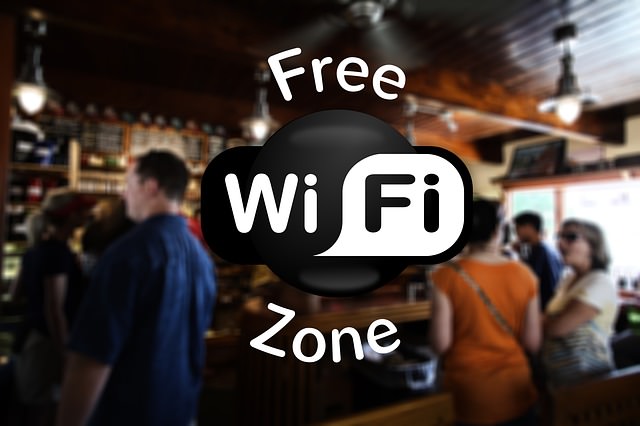After long discussions, finally the German legislator implemented a rule excluding liability for providers of public Wi-Fi Hotspots. However, there remain relevant legal risks for operating public Wi-Fi Hotspots. Key aspects of this recent amendment of the German Telemedia Act (TMG) are summarised below.
1. Liability Limitation for Access-Providers
Sections 7 and 8 TMG contain a liability limitation for so called access-providers. As they do not provide online contents, but only access, they shall in principle be free from any claim on the basis of e.g. copyright infringements by providing such content. Where access-providers are made aware of such infringing content, they may eventually be obliged to block access (notice and take down) while there is no obligation for actively monitoring for infringements.
For providers of public Wi-Fi Hotpots, there is a long-standing debate as to whether or not they are access-providers by the meaning of Telemedia law. This debate particularly turns relevant in the context of enforcing claims for cease and desist in online copy right infringement cases (e.g. file sharing). In such cases, typically there is no active infringement by the Wi-Fi Hotspot provider or at least no respective prove. Accordingly, there is a debate as to whether or not the Wi-Fi Hotspot provider is liable under the interferer’s liability principle (Prinzip der Störerhaftung).
Under the interferer’s liability principle, Wi-Fi Hotspot providers are subject to cease and desist claims where they have with intention created cause for the infringement (of copyright) e.g. by providing internet access via a public Wi-Fi Hotspot. In 2010, the German Federal Court (BGH) applied these principles to Wi-Fi Hotspot providers in the landmark case “Summer of our Life (Sommer unseres Lebens)”. Following the BGH ruling, the interferer’s liability principle applies where the Wi-Fi Hotspot providers fails to (i) implement state of the art security mechanisms for the Wi-Fi Hotspot and to (ii) carry out regular compliance-Checks.
This far-reaching application of the interferer’s liability principle lead to relevant legal risks for operating public Wi-Fi Hotspots and the consequence that public Wi-Fi coverage in Germany is significantly lower as compared to other European countries.
2. Application of the Access-Provider Liability Privilege to public Wi-Fi Hotspot Providers
The second TMG Amendment Act (2. TMG-Änderungsgesetz) as of June 2016 implements supposedly clear guidance in Section 8 (3) TMG, stating the access-provider’s liability privilege applies to Wi-Fi Hotspot providers.
“Para 1 and 2 [containing the access-provider’s liability privilege] apply for providers in the meaning of para 1 providing internet access via local non-wired networks”
The respective legislative initiative’s goal was, inter alia, to reduce legal risks for public Wi-Fi Hotspot operators in order to create incentives for more public Wi-Fi Hotspots. If at all, this goal was achieved to a very limited extent only. In particular, the TMG amendment may not be considered as providing relevant protection against claims for cease and desist. This in particular holds true for the following reasons.
German courts are of the opinion that the access-provider’s liability limitation provides protection against damage claims, but no protection against claims for cease and desist. It appears rather unlikely this approach will change under the current amendment of the TMG.
In the legislative process, there was a proposal to include a para 4 to Section 8 TMG explicitly stating there is no rights holder’s claim for cease and desist against public Wi-Fi Hotspot providers where and to the extent they have implemented state of the art security measures preventing misuse of their Wi-Fi Hotspots. This provision has, however, not survived legislative debate.
Further, there are arguments from the perspective of European law against effective protection of public Wi-Fi Hotspot providers from cease and desist claims. Under Art. 12 (3) and Art. 14 (3) Directive 2000/31/EC (E-Commerce-Directive), there must be court measures provided by Member States’ law against intermediaries (such as access-providers) who’s services are used for (copyright)infringements. This aspect is also picked up in the recent European Court of Justice (ECJ) decision (C-484/14), inter alia stating explicitly, that public Wi-Fi Hotspot providers are not protected against cease and desist claims to prevent (copy)right infringements committed via their Wi-Fi Hotspot.
In such case, public Wi-Fi Hotspot providers must bear costs for cease and desist claims and respective court actions. However, there is also light in the ECJ ruling. Where the Wi-Fi Hotspot provider has taken state of the art security measures to prevent the infringing action, for the decision on costs for legislative proceedings, the addressed court must carry out a balancing of interests’ test taking into account the right holder’s freedom to carry out his business and the public interest to access information via public networks. In this context, the ECJ is of the opinion that public Wi-Fi Hotspot providers comply with their duty of care when implementing security measures preventing infringing actions by requiring information to identify users of their public Wi-Fi Hotspot where need be.
3. Conclusion
Extending the access-provider’s liability privilege to providers of public Wi-Fi Hotspot fails to significantly decrease their legal risks, because the respective liability limitation does not apply to cease and desist claims and subsequent court rulings. Before setting up public Wi-Fi Hotspots, it is recommended to carefully assess legal risks and to decide on state of the art measures to prevent infringing actions carried out via the public Wi-Fi Hotspot.


